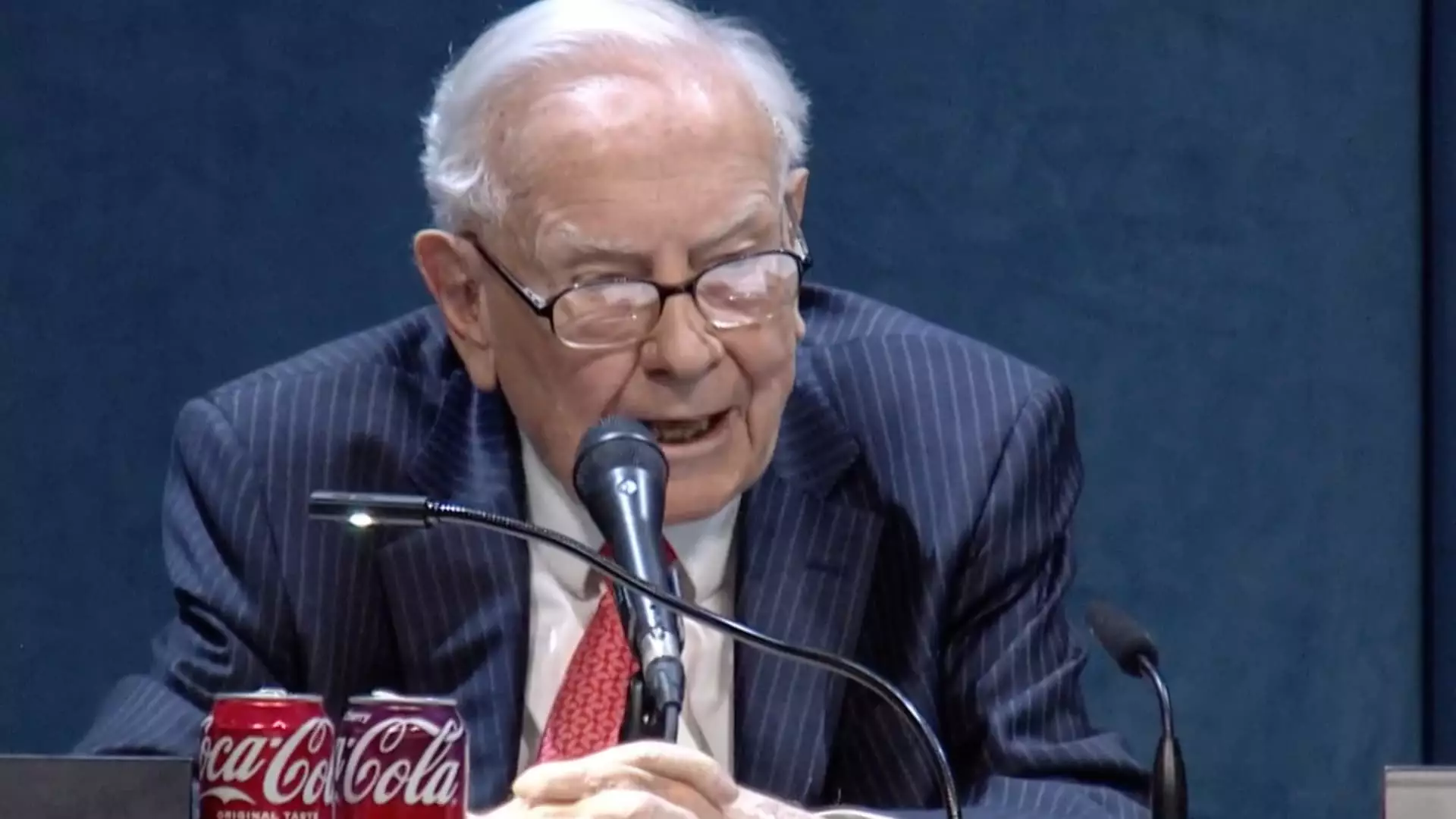Warren Buffett, the Oracle of Omaha, stands as a paragon of investment wisdom and strategic foresight. His recent critique of the hardline trade policies enacted by the Trump administration sheds light on the potentially devastating effects of protectionism on a globally interconnected economy. Though he refrained from explicitly naming the president, the implications of his message resonate loudly in a landscape fraught with uncertainty and volatility. With nearly a century of experience, Buffett’s observations are not merely anecdotal; they are a masterclass in economic insight that lawmakers and investors alike would be wise to heed.
The Peril of Tariffs: A Potential Act of War
Buffett’s assertion that trade and tariffs can be likened to acts of war is particularly poignant. In a world where collaboration fuels innovation and prosperity, adopting an adversarial stance seems not just imprudent, but jeopardizing. The indiscriminate application of tariffs, especially when levied against nations that represent significant trading partners, threatens to unravel decades of diplomatic and economic progress. By framing trade as a weapon rather than a bridge, we risk alienating allies and empowering adversaries. The interconnected nature of our global economy means that isolationism can generate a dangerous ripple effect, one that could lead to both economic downturns and geopolitical tensions.
The Fallacy of Protectionism
Protectionist policies, as Buffett highlighted, fail to recognize the inherent strengths of global trade. The myth that one nation’s gain must come at the expense of another has been debunked time and time again. Instead, creating an environment where countries can specialize in what they do best fosters mutual benefit—a concept that lies at the heart of market economics. In targeting international trade through punitive tariffs, the message conveyed is that competition is to be feared, rather than embraced. This perspective not only hinders innovation but also diminishes the very essence of capitalism: that of dynamic growth through competitive markets.
An Economy in Recession: Unpacking the Consequences
The recent contraction in the U.S. GDP, the first since 2022, underscores the weight of Buffett’s warnings. Tariffs and geopolitical uncertainties have precipitated a situation where businesses are paralyzed, unable to navigate a landscape fraught with unforeseen costs and risks. The long-term damage may be insidious. Companies, such as Berkshire Hathaway, face not merely immediate financial repercussions but also the difficulty of planning for a future that remains shrouded in unpredictability. Increasingly, Buffett’s firm has taken a defensive position, divesting from major equities and hoarding cash—a sign of cautious retreat amid chaos.
The Myth of Nationalism in Trade
Buffett’s commentary touches on a more profound philosophical point: the dichotomy between nationalism and globalism. The notion that the prosperity of Americans hinges solely on the success of American industries is dangerously simplistic. The increasing interconnectedness of our economies means that a safety net woven through cooperative trade agreements strengthens not just individual countries but the global fabric as a whole. When viewed through the lens of Buffett’s words, protectionism appears not as a means of safeguarding American interests, but as a counterproductive approach that jeopardizes our standing in an interdependent world and puts future generations at risk.
A Call for Forward-Thinking Leadership
Buffett’s views should serve as a clarion call for leaders across the political spectrum. As citizens, we must advocate for visionary leadership that prioritizes cooperation over confrontation. To move the needle towards a brighter economic future, policymakers need to cultivate a framework that emphasizes collaboration and mutual growth. The stakes are enormous; by fostering an environment of continuous engagement and constructive dialogue, we not only ensure our prosperity but safeguard against the destructive whims of isolationism.
His remarks encapsulate not just a critique of one administration’s policies but a broader commentary on the repercussions of fear-driven economic strategies. In a time when rational discourse often gives way to fear-mongering, Buffett’s wisdom shines a light on the realities that should guide decision-making in economic policy. Let us hope that this message holds resonance as we navigate the turbulent waters of the evolving global trade landscape.

